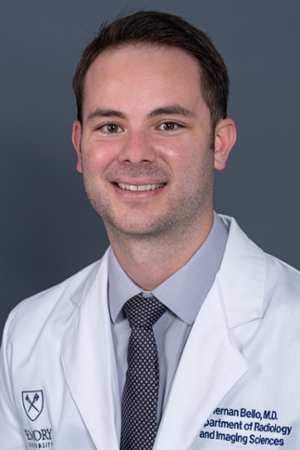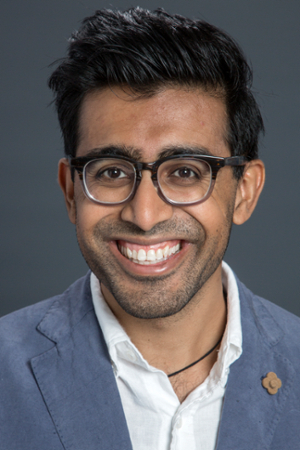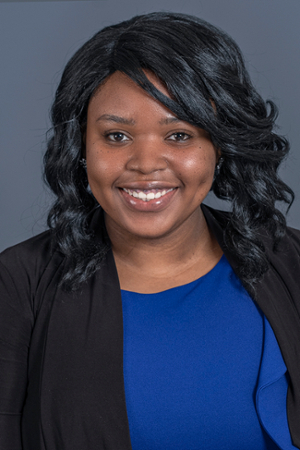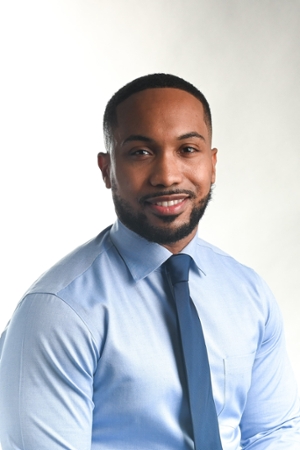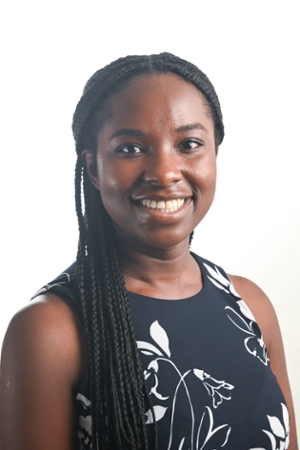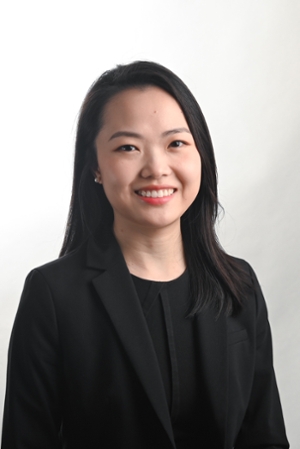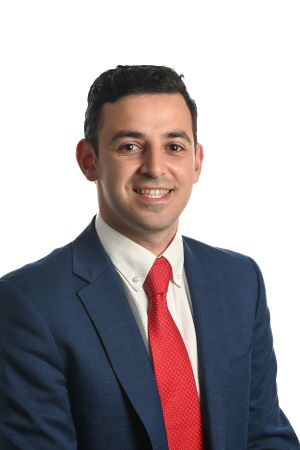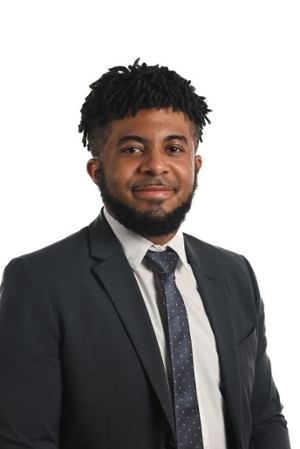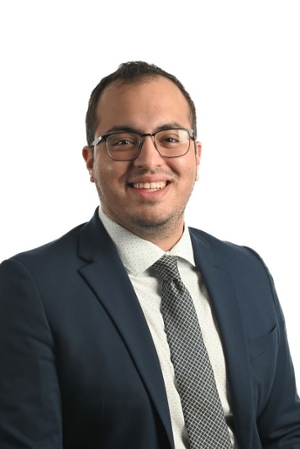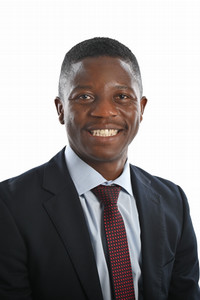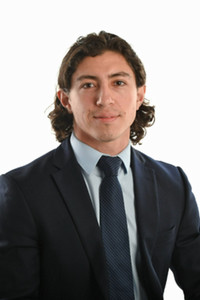Mission and Vision
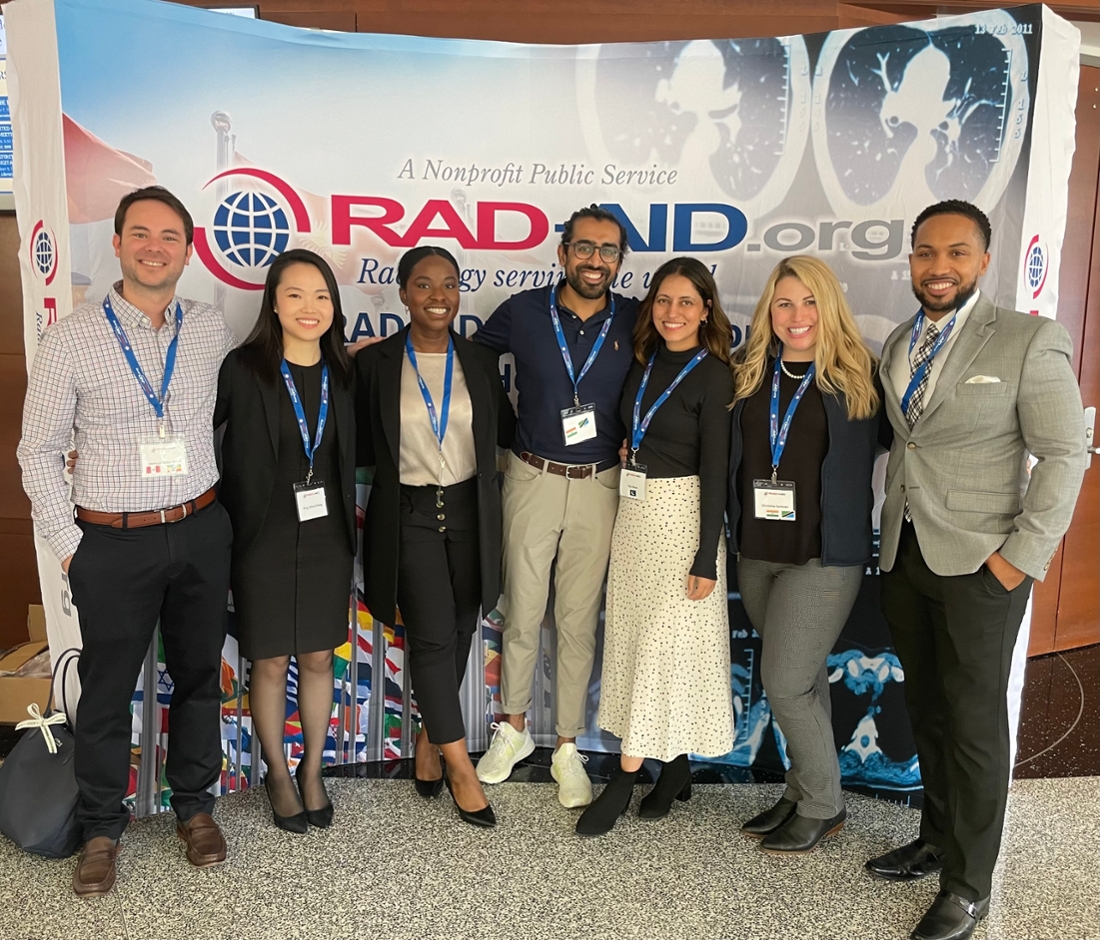
Everyone deserves access to high quality health care, including diagnostic and interventional radiology. To move toward such health equity, the Emory Radiology Residency Global Health Track leverages Emory's eminence in global health initiatives to train a new generation of radiologists to become collaborative agents of global health change.
The curriculum is structured with these six core values:
- Clinical Competency
- Cultural Competency
- Health Policy Competency
- Leadership
- Education
- Scholarship
The Program: Global and (G)local
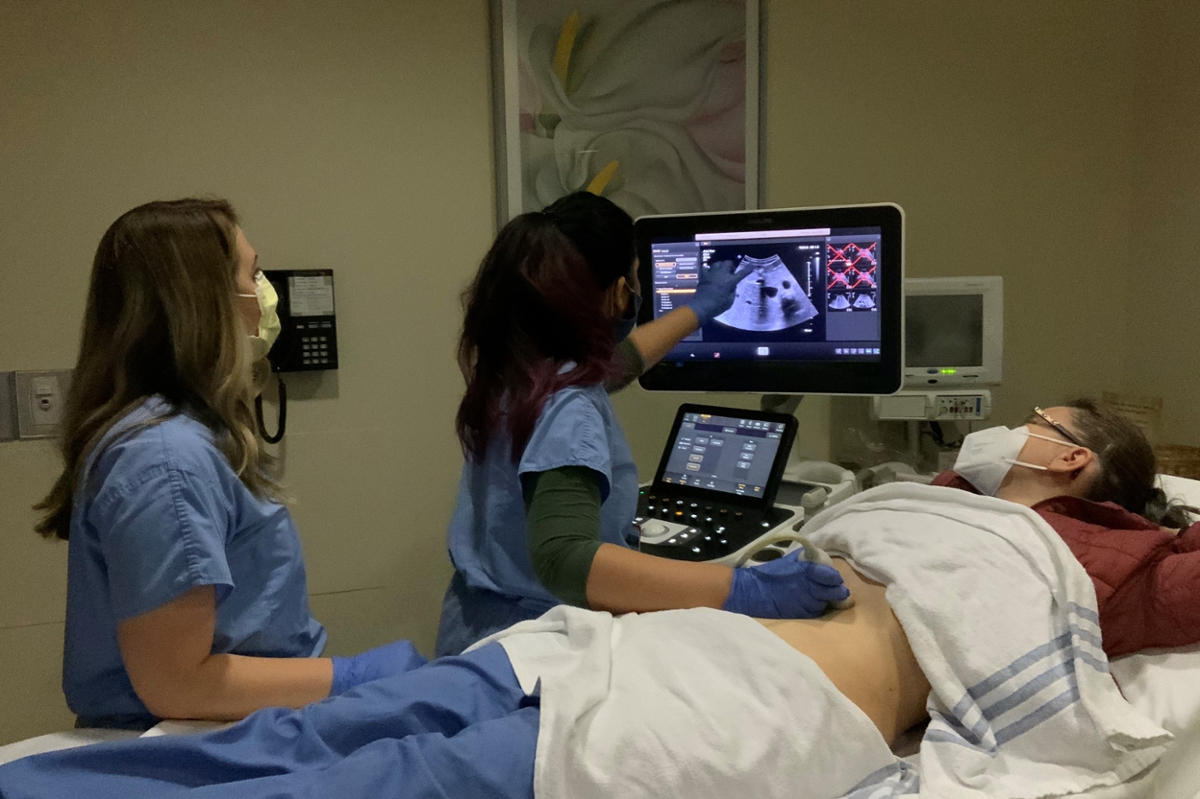
The Global Health Track develops residents' expertise in topics of public health and policy, their understanding of the challenges involved in improving access to radiology services in resource-limited settings, and their cultural competency while equipping them to advocate for and with vulnerable local and international communities to improve access to health care and imaging services.
Through lectures, seminars, and journal clubs residents explore local and international health care systems and policies; economic, cultural, and environmental factors contributing to health and disease; and strategies for addressing these issues. Established local and global partnerships with community organizations and clinics provide ample opportunity for residents to learn alternate methods for diagnosing and treating a range of conditions in health care settings with limited diagnostic imaging resources. Residents additionally have ample opportunities for teaching, pursuing original scholarship, and presenting at national and international conferences.
Like the other tracks of the Diagnostic Radiology Residency program, the Global Health Track encourages and is the result of resident-led innovation. Zofia Lasiecka, MD, PhD, and Fiza Khan, DO, now program alumna, developed the track as their Adopt-A-Resident grant-funded project and served as the track's first resident co-directors before graduating in May 2024. The current resident leader is Jacqueline Koomson, MD.
Curriculum
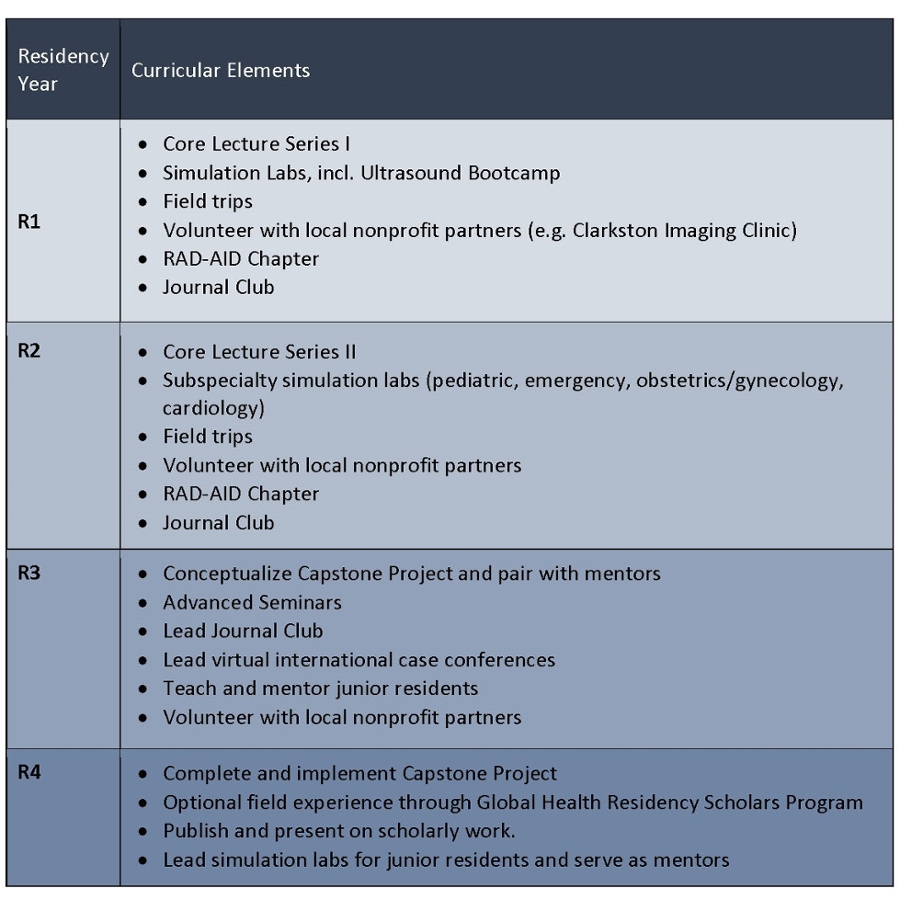

Point of Care Ultrasound (POCUS) Curriculum
The most prevalent - and in many cases the only - imaging modality employed in resource-limited communities is ultrasound. Given the prominent role the modality plays in low-resource settings, residents train extensively to achieve proficiency in both image acquisition and interpretation using ultrasound. This starts with the first-year ultrasound bootcamp and continues with simulation labs and proficiency assessments throughout the first two years. Residents hone their skills during service in clinical settings such as the Clarkston Imaging Clinic.
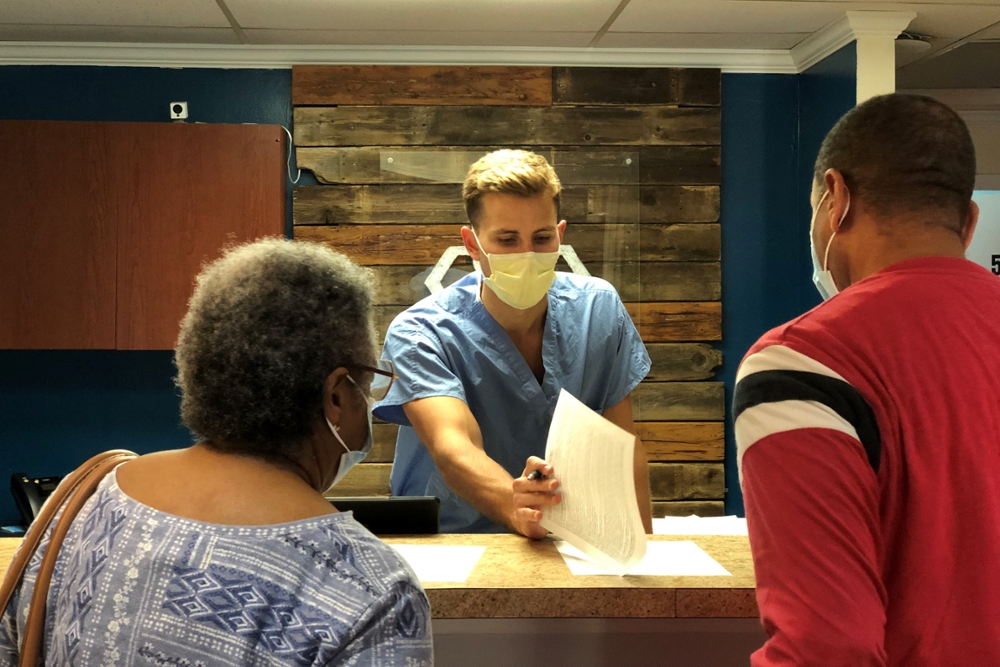
Clarkston Imaging Clinic
The Clarkston Imaging Clinic relies on attending radiologists, diagnostic radiology residents, medical students, and imaging technologists to provide and interpret ultrasound exams without cost to patients for a range of presenting problems. The Clarkston Imaging Clinic partners with a number of community health clinics to provide a patient-centered continuum of care.
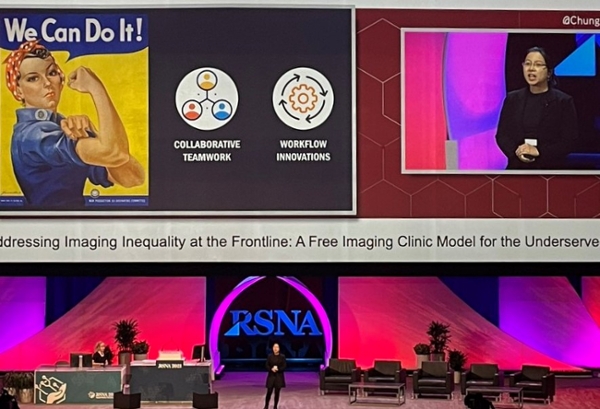
Launched as an Adopt-A-Resident Grant project in 2019 by then-residents Charlotte Chung and Dean Thongkham, the clinic serves residents in and around Clarkston, an Atlanta suburb dubbed the Ellis Island of the South. It may be the most ethnically diverse square mile in America because it's home to such a large population of refugees from dozens of different countries, new Americans who speak dozens of different languages and who often struggle to understand and access the American health care system.
The clinic is such an exciting example of redefining radiology, Dr. Chung presented it for the 2021 RSNA Fast5 competition.
Collaborative Global Health Programs
Emory long has invested in fostering strong collaborative partnerships to improve health and wellness around the world. This tradition continues with the following partnerships and programs:
Emory Radiology Global Health Initiative - The Radiology Global Health Initiative provides multiple pathways to co-learning, capacity-building relationships with Emory global health partners.
GLOBE Track - The GLOBE Track: Global Health Overview by Education and Engagement is a 24-month (or more) track organized by the Global Health & Equity Office of the School of Medicine aimed at preparing residents and fellows for careers with global health responsibilities. The track combines asynchronous course work, case-based exercises, live panels, and didactic sessions followed by a global health experience and capstone project. Radiology Global Health Track residents are enrolled in GLOBE and upon completing the GLOBE Track requirements, graduate with a distinction in global health from the Emory School of Medicine.
Emory University School of Medicine Global Health Residency Scholars Program (GHRSP) - Launched in 2012 from a foundation laid by Emory Radiology, the GHRSP includes a year-long curriculum and a month-long clinical rotation at Black Lion Hospital in Addis Ababa, Ethiopia. The program engages residents from numerous residency programs across the School of Medicine with residents from Addis Ababa University, creating an enriching cross-cultural, multi-specialty collaborative learning experience. Radiology Global Health Track residents have priority placement in GHRSP.
RAD-AID Chapter - A RAD-AID Chapter is a grass-roots organization started by Emory Radiology faculty and trainees to support and engage in global health outreach and radiology training. RAD-AID's mission is to increase and improve radiology in low- and middle-income countries, as well as underserved areas of high-income countries.
Our Faculty
Our Residents
Application
Residents in the Diagnostic Radiology and Interventional Radiology-Integrated Residency programs apply for the Global Health Track early in their first year of residency.


